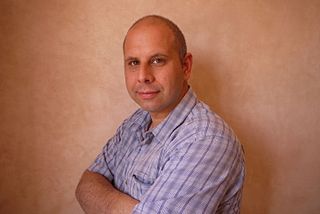A Quote by Charles Caleb Colton
Pedantry crams our heads with learned lumber and takes out our brains to make room for it.
Related Quotes
Many quantum physics are realizing or hypothesizing that consciousness is not a byproduct of evolution as has been suggested. Or for that matter, an expression of our brains, although it expresses itself through our brains. But consciousness is the common ground of existence that ultimately differentiates into space, time, energy, information and matter. And the same consciousness is responsible for our thoughts, for our emotions and feelings, for our behaviors, for our personal relationships, for our social interactions, for the environments that we find ourselves in, and for our biology.
We always keep things very, very simple. We can make a respectable living playing a smaller room that somebody else couldn't, because they're spending a lot of money. If we can't get a show up and deliver with what we almost intrinsically have in our brains and our pockets, then I don't really want to do it.
Even yet Christ Jesus has to lie out in waste places very often, because there is no room for him in the inn--no room for him in our hearts, because of our worldliness. There is no room for him even in our politics and religion. There is no room in the inn, and we put him in the manger, and he lies outside our faith, coldly and dimly conceived by us.
I think our brains does have a tendency to be true to its own ideas and statements. Everything we do and everything we think about is a belief. Until we get to the point where we look beyond our own ego-self, and to some degree beyond our own mind, we are always going to make assumptions and have beliefs to make our brains feel more comfortable. And if we can get to a point where we embrace that uncertainty and doubt, and be willing to learn from that and to explore that, I think that that could be a very positive experience.
Confronting our feelings and giving them appropriate expression always takes strength, not weakness. It takes strength to acknowledge our anger, and sometimes more strength yet to curb the aggressive urges anger may bring and to channel them into nonviolent outlets. It takes strength to face our sadness and to grieve and to let our grief and our anger flow in tears when they need to. It takes strength to talk about our feelings and to reach out for help and comfort when we need it.






































